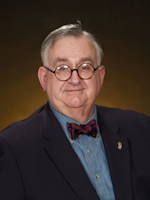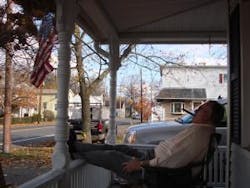They are still at it. I have been writing about this matter for years, but the instant know-it-alls are still out there scoffing at the accumulated wisdom of the veteran members in their fire departments. Once again my friends, it is time to share my thoughts with you about something within our fire service which really makes me mad. As most of you know, I am a strong proponent of the concepts of participative management and servant leadership. I like people who play a part in organizations. However, perhaps it is time to place a couple of limiting statements on this caring, sharing approach to providing for your fellow travelers in the fire service world.
It has been my sad experience that we cannot give free reign to everyone simply because it seems like the fair thing to do in a free society. Not everybody knows what they are doing. Further, I think that there has to be an increased emphasis on the importance of experience to operations within our fire departments. Over the past decade or so, I have seen the development of a really disturbing trend among the younger members of our beloved fire service.
These are the people who learn everything they ever think they will need during their firefighter recruit training. These hooples return from the academy firmly convinced that they know it all. They are also equally certain that no one else could possibly know as much as they do, especially those 'old guys'. Woe be unto the veteran who makes the mistake of thinking that they need to correct any of the notions held by these instant veterans. Hence the name I have given them in the title of this week's visit with you.
In my youth much ado was made over a William Ward song made popular by the Dominos and the Persuasions. It was entitled The Sixty-Minute Man. Maybe some of you remember hearing it during a really passionate scene from the baseball movie, Bull Durham. Here are a few of the words that made me think:
"Well, listen here, girls, I'm telling you now,
They call me loving Dan,
I rock 'em, roll 'em all night long
I'm a sixty-minute man.
And if you don't believe I'm all I say,
Come up and take my hand.
As soon as I leave you go, you'll cry
Oh yeah, he's a sixty-minute man!"
This song was about an individual who possessed an amazing physical prowess in the arena of romance. The subject of this song deals with an individual who could grab a woman's attention, win her heart, and make her happy, all within the short space of a mere sixty minutes.
It is a nice song, with a catchy melody. I really like it. However, its premise is as far from reality a thought can possibly be. To truly win the heart of woman, much time, effort, love, and sincerity must be invested. You must come to know and understand the heart and soul of a woman (or man) before any sort of lasting commitment can be made.
In short you must devote the time and effort to learning how to love someone. It does not just happen. It is quite unlike what the romance novels and popular songs would suggest to us. I am here to say that the living of life requires massive commitments of time, talent, training, and education. These are the sort of topics which often fill the paragraphs of my visits with you. Let me also strongly suggest that these are the bottom-line things which go into learning how to practice your craft as a firefighter. It takes a heck of a lot more than good looks and good intentions to become a capable firefighter.
Yet I continue to encounter young folks who look at their recruit fire training at the local academy as the be-all and end-all of their journey through the fire service training forest. Let me suggest that I am well-qualified to say this to you based upon the perspective I have developed over my nearly five decades of service as a member of the fire and emergency service world.
You must remember that ours is a very demanding and ever-changing field of endeavor. It is hard to believe after all of my years in the service, but there is still something new coming around the corner at each of us. Whether it involves the research into what we do, the latest tools or some new form of technology, there is plenty for each of us to learn.
Our fire service is still a place where the basic skills must be continually studied and their use reinforced on the drill ground. Hard years of experience have taught me that you cannot stretch a hoseline once, or raise and place a ladder once and consider yourself an expert. You must drill continually. In addition, you need to continually practice the manner in which the pump on your fire engine is engaged, and the water moved through the hose lines.
Another of the great fallacies of our field of endeavor involves the supposition that the best firefighter will make the best leader. I am here to tell you that this is work of pure fiction. Capable firefighters are necessary if we are to get our work done on the fireground. However, being a leader involves one heck of a lot more than merely going to a boatload of emergency incidents.
Another of the traits that I see running rampant among the 20-minutes wonders is the push for power, position, and prestige which they make years many years before their experience would dictate such advancement. The push for immediate knowledge and instantaneous gratification is just one more aspect of the everyday world which is forcing its way through our doors. Lest you think I am railing against change let me assure you that this is not the case. None of us can stop change.
However we cannot allow the creation of a mindset within the fire service which revolves around the belief that instant gratification and instantaneous power and position are good things. I say this for the simple reason that we would simply be setting ourselves up for a great and massive organizational failure if we were to allow this to happen.
There are a number of factors which need to be considered at this point. Each of which forms a part of the overall fire service operational triangle:
· Training
· Education
· Experience
Each of these taken by all by itself is an insufficient foundation for success. Many have been the well-trained people with who I have worked who were not highly educated. Let me stress that all of us can operate in this environment if the people in the organization are willing to listen to the voices of experience and reason. However, when training can be supplemented by education and experience, the road to the future becomes a bit smoother.
Here is the ideal sequence of affairs for preparing our people, at least as I see it:
· Find and recruit the right people
· Recruit training under a well-trained staff
· Mentorship by a veteran during the initial work assignment
· A guided system of education in the many aspects of the fire service
· The use of experience in a positive manner, viz. critiques after each incident to identify the good things as well as the problems
· Re-reading of the educational materials as a way of reinforcing the good things and overcoming the bad things which were identified during the critique.
· Making the whole process a continuing circle of learning, doing, critiquing and retraining.
No one should be exempt from their part in this loop of learning. There is no such thing as a well-trained, twenty-minute wonder. Each of us who wishes to excel must understand the demands which are made up us in the areas of learning, performing, and improving. The key methods which we should all consider employing are two-way dialogue, practical reasoning, active listening, and the simple act of sharing.
It may seem trite to tell you all that there is no "I" in we, but that is as simple as it gets. These "twenty-minute" wonders act as though the world revolves around them and the minimal amount of knowledge they have absorbed during the minimal amount of time they have been amongst us.
I cannot tell you how many times during my tenure in the fire service that my attempts to establish an educational dialogue have been rebuffed. I guess these folks look at me as just one more old fool that has seen his day and should move along and let the new generation do whatever it is that they want. Sorry Charlie, I am one tuna that just isn't going to move along.
It scares me to think about the many younger officers who dismiss the experience and wisdom of their elders without a moment's thought. I have a theory which states that each generation thinks itself to be that much smarter than the generations which preceded them. Being smarter, in their own minds, they do not feel the need to pay attention to the advice offered to them.
Perhaps this is why you see people dying in the same way and manner as other who have done before them. There was the 1978 Waldbaums tragedy in Brooklyn, New York when six firefighters fell through the roof of a blazing supermarket into the maelstrom of flames below. Then again there was the Hackensack tragedy in 1988 when a three of the five firefighters who died fell through the roof of a truss building (just like Waldbaums. The collapse of a truss roof on a Texas church claimed three more lives in 2003.
Am I missing something here? Regardless of how often my efforts are rebuffed, let me assure you that I will continually work to reach out to share what I know. Most of your cards, letters, and emails tell me to keep on pitching, so that is what I intend to do.
Remember, a lot of what I am sharing with you was shared by people who were called home by the Lord many years ago. I am just trying to keep the gift of their knowledge alive in today's world. Ignore age and wisdom at your own peril.

About the Author
Dr. Harry Carter
HARRY R. CARTER, Ph.D., who is a Firehouse contributing editor, is a fire protection consultant based in Adelphia, NJ. He is chairman of the Board of Commissioners in Howell Township Fire District 2 and retired from the Newark, NJ, Fire Department as a battalion commander. Carter has been a member of the Adelphia Fire Company since 1971, serving as chief in 1991. He is a life member and past president of the International Society of Fire Service Instructors and life member of the NFPA. He is the immediate past president of the U.S. branch of the Institution of Fire Engineers (IFE) of Great Britain. Carter holds a Ph.D. in organization and management from Capella University in Minneapolis, MN.
Connect with Harry:
Email: [email protected]
Voice Your Opinion!
Voice Your Opinion!






